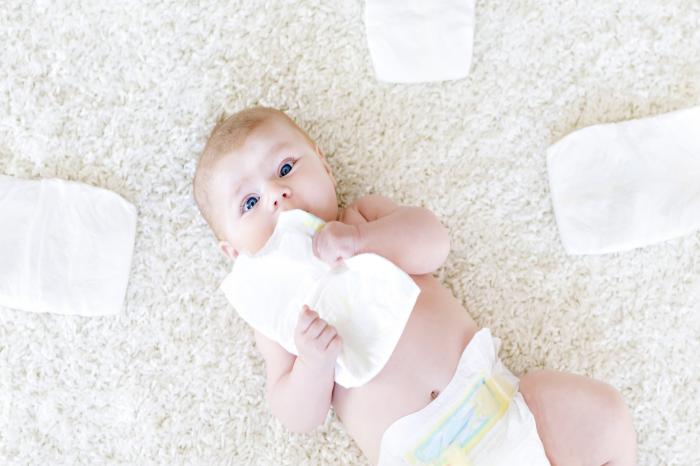When parents welcome a new baby, they face many choices. One critical decision involves diapers. Many parents buy diapers in bulk to save money and ensure they always have enough on hand. However, a common question arises: Do diapers go bad if opened? This article will explore the shelf life of diapers, their storage requirements, and tips for ensuring they remain effective.
Understanding Diaper Materials
To comprehend how diapers can go bad, it’s essential to know what they are made of. Diapers typically consist of three main layers:
Top layer: This layer is designed to keep moisture away from the baby’s skin.
Absorbent core: This layer is the heart of the diaper. It absorbs and holds moisture to keep the baby dry. It is often made from a combination of fluff pulp and superabsorbent polymers.
Outer layer: This waterproof layer prevents leaks. It is usually made of plastic or a similar material.
These materials are designed to last but may degrade under certain conditions.
Shelf Life of Diapers
Most disposable diapers have a shelf life of about 2 to 3 years if stored correctly. This shelf life begins from the date of manufacture. Once opened, diapers can last for a similar period if they are kept in appropriate conditions. However, if the packaging is damaged, they may not last as long.
Signs That Diapers Have Gone Bad
While diapers do not have an expiration date like food products, there are signs to watch for that indicate they may no longer be safe to use.
1. Discoloration
If diapers appear yellow or have any unusual discoloration, it may be a sign that they have started to degrade. Discoloration can occur due to exposure to light or air.
2. Smell
A strong, unpleasant odor can indicate that the materials inside the diaper have begun to break down. Fresh diapers should not have a strong smell.
3. Texture Changes
If the diaper feels rough or crumbly, it may be a sign that the absorbent materials inside are breaking down. A functional diaper should feel soft and smooth.
4. Sticking
Sometimes, the adhesive tabs on the diaper can lose their effectiveness. If the tabs do not stick well, the diaper may not function properly.
5. Mold or Mildew
If you notice any signs of mold or mildew, do not use the diaper. Mold can occur if the diapers are stored in damp or humid conditions.
Proper Storage of Diapers
To extend the life of opened diapers, proper storage is essential. Here are some tips to ensure your diapers remain effective:
1. Keep in a Cool, Dry Place
Store diapers in a cool and dry area. Humidity and extreme temperatures can lead to material degradation. The ideal temperature is between 68°F and 72°F (20°C to 22°C).
2. Avoid Direct Sunlight
Keep diapers out of direct sunlight. Sunlight can degrade the materials and lead to discoloration.
3. Store in Original Packaging
If possible, store diapers in their original packaging. The packaging protects them from dust, dirt, and moisture.
4. Seal Opened Packages
If you open a package of diapers, reseal it tightly. You can use clips or rubber bands to help keep air out.
5. Avoid Stacking Heavy Items
Avoid placing heavy items on top of diaper packages. Weight can compress the diapers and affect their shape and absorbency.
What to Do with Old Diapers
If you discover that your opened diapers have gone bad, it’s essential to dispose of them properly. Here’s how to manage old diapers:
Dispose of Safely: Throw away any diapers that show signs of degradation. Do not attempt to use them on your baby.
Check for Recalls: Occasionally, manufacturers recall diapers for safety reasons. Check for any recalls on the brand of diapers you have.
Consider Donating Unopened Packs: If you have unopened packs that are still within their shelf life but are no longer needed, consider donating them to shelters or organizations that help families in need.
Use Them for Cleaning: If the diapers are old but still functional, you can repurpose them for cleaning. The absorbent materials can be useful for spills.
Environmental Impact of Disposable Diapers
While discussing diaper usage, it’s essential to consider the environmental impact of disposable diapers. Diapers contribute significantly to landfill waste, and their decomposition can take hundreds of years. Many parents seek eco-friendly alternatives. Some options include:
Cloth Diapers: These reusable diapers are made of fabric and can be washed and reused. They are more environmentally friendly and can save money in the long run.
Biodegradable Diapers: Some brands offer biodegradable disposable diapers. These diapers break down more quickly than traditional disposable options.
Hybrid Diapers: Hybrid diapers combine features of both cloth and disposable diapers. They have a washable cover with a disposable insert, providing flexibility and reducing waste.
See also: What Is The Gel In Diapers
Conclusion
In summary, opened diapers can remain effective for a considerable period, typically up to 2 to 3 years, if stored correctly. However, parents must be vigilant for signs of degradation, such as discoloration, odors, or texture changes.
Proper storage is crucial to maintaining diaper quality. Keeping them in a cool, dry place away from direct sunlight can help extend their life.
If you discover that your diapers have gone bad, dispose of them safely and consider eco-friendly alternatives to reduce your environmental impact. By making informed choices about diaper usage and storage, parents can ensure they provide the best care for their babies while minimizing waste.
Remember that the comfort and safety of your little one are paramount. Choosing quality products and caring for them properly can contribute to a happier and healthier diapering experience.
Related topics:


